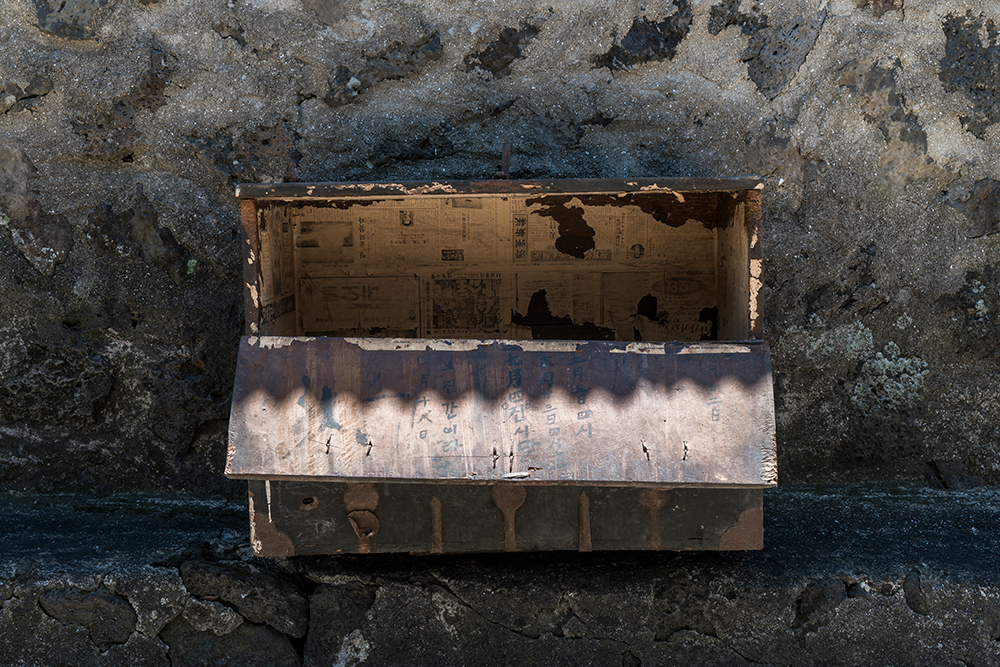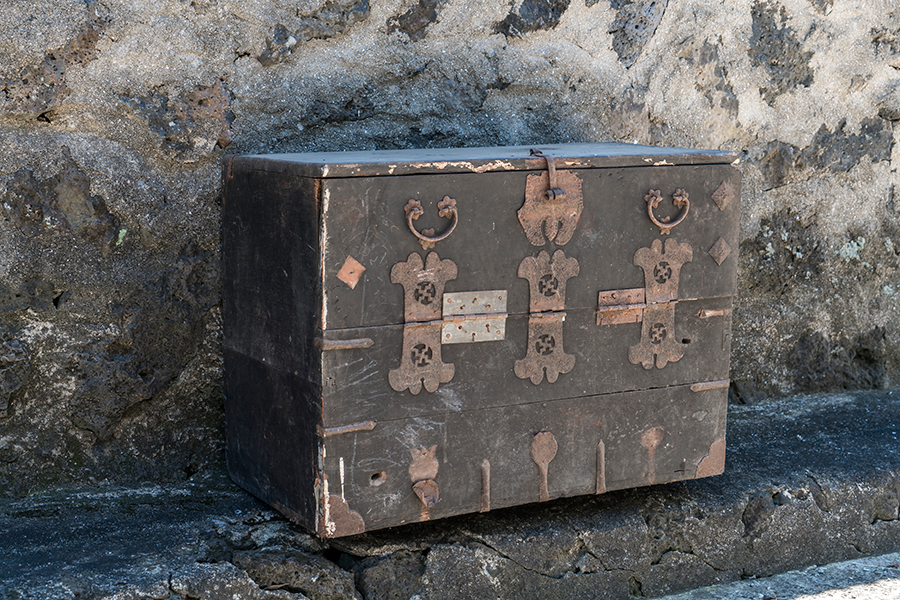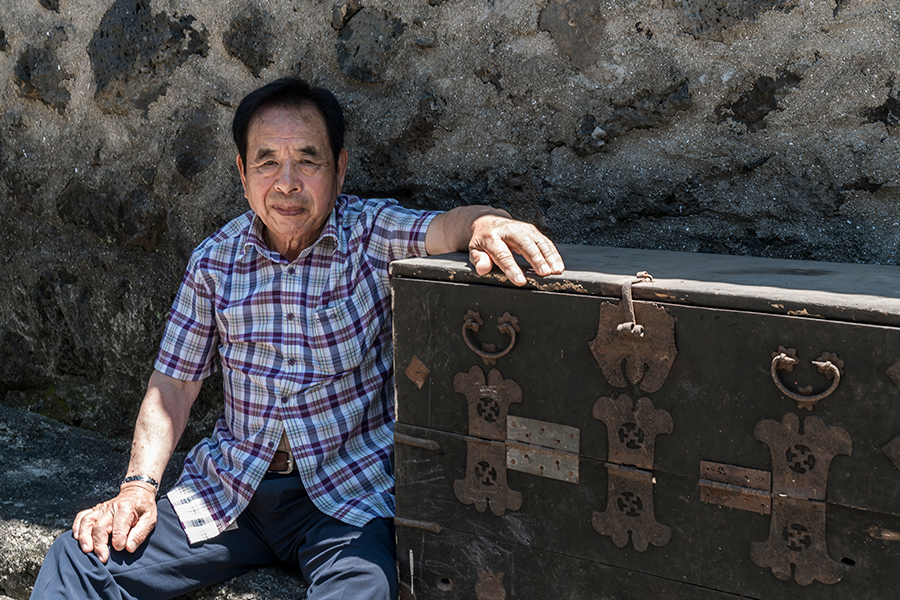
I was treated as a subhuman being,
framed as a commie or an armed guerilla.
Numbers stained with blood lie in the sun to dry off.
The sunlight pats the letters from 70 years ago
as does the pacifying touch for the newborn.
Father wrote inside the gwe the birthdays of his five children.
In the same wooden container,
the surviving son kept the clothes to enshroud his father.
That way, life and death were kept in one box.
On the inside of this gwe, Oh’s father recorded the birthdays of his children.
Based on the records, Oh performs rites for his three elder brothers who went missing and probably lost their lives during Jeju 4·3.
On Jeju, the memorial ceremonies of many victims are held on their birthdays, instead of the unidentified anniversaries of their deaths.


“I was 17 when 4·3 broke out. The counterinsurgency forces raided my village in Gasi. We were ordered to evacuate the village to Pyoseon Elementary School. A few days passed and my parents took four of their children including me down to the Pyoseon area. My three elder brothers took refuge in the nearby mountain. After that, I did not see them again. We were detained in the elementary school.
Making a list of the detainees, the counterinsurgency forces ordered that minors aged under 15 and breastfeeding mothers step aside. My father had me listed as a 14-year-old minor, saving my life. If I told them my real age, I would have been dead because all the kids my age died. All those that were taken outside the building were shot to death. The next day, we were told to take care of the bodies of our family members or friends. My uncle covered the bodies of my parents with soil, and the following year, I mean, in 1949, we carried them to this area for reburial. In Pyoseon, a group of 76 people was massacred at the same time. I lost both of my parents and was left with my 15-year-old sister and my 7-year-old brother. With my little brother on my back, I kept crying for the next seven days or so. And I kept thinking, I kept asking myself what I was supposed to do for my sister and my brother, as the head of the household. The answer was that above all, I needed food for them. Living with the responsibility that I cannot let them starve to death, I managed to raise them and helped them get married, just as our father would have done.
Up until a few years ago, I could not openly tell others that my parents were the victims of 4·3. Obviously, it could cause me harm.